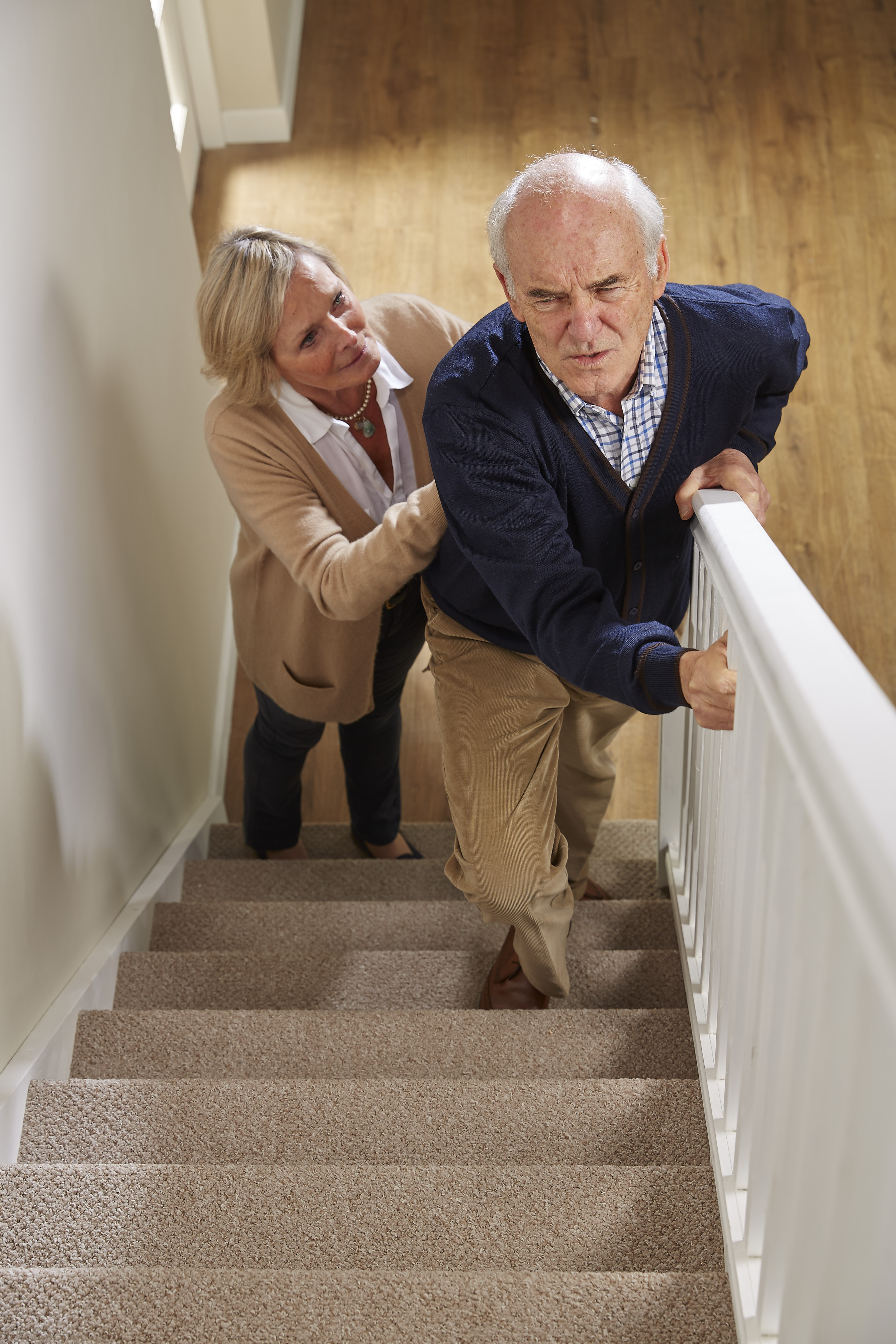Heart failure is the gradual reduction of your heart’s ability to properly perform its job of pumping blood around your body.
Unlike a ‘heart attack’, it doesn’t mean that your heart has stopped working, but rather that it is no longer working as well as it should and needs some support to improve its performance. It can occur at any age, but is most common in older people and can lead to a significant loss of mobility due to feeling exhausted and becoming breathless with even moderate activity.
 Heart failure is a long-term condition which gets worse over time. It can’t usually be cured, but its symptoms can be controlled for many years through a combination of lifestyle changes, medication and, sometimes, surgery.
Heart failure is a long-term condition which gets worse over time. It can’t usually be cured, but its symptoms can be controlled for many years through a combination of lifestyle changes, medication and, sometimes, surgery.
Conditions which can often lead to heart failure include coronary heart disease (in which the arteries supplying blood to the heart become clogged up with fatty substances), high blood pressure, irregular heart rhythms, conditions affecting the heart muscle (cardiomyopathy), or problems with the heart valves.
Main symptoms of heart failure include breathlessness (either after activity or at rest, and sometimes worse when you’re lying down); feeling tired most of the time and finding exercise exhausting; and swollen ankles and legs caused by a build-up of fluid, which often gets worse as the day progresses. Other less common symptoms include a persistent cough, wheezing, loss of appetite, weight gain or weight loss, dizziness and fainting, a rapid heart rate, palpitations and confusion. If you experience any of these symptoms, you must seek medical advice.
Once heart failure is diagnosed and its severity established, there are several things you can do to improve your quality of life while living with the condition. Treatments can include medication in conjunction with regular medical reviews, a procedure to implant a small device such as a ‘pacemaker’ in your chest to support your heart function, or various types of surgery to correct malfunctions of the heart.
However, one of most effective ways to manage heart failure is to look after yourself better by making a range of lifestyle changes, all of which will benefit and support the function of your heart. Once you’ve been diagnosed with heart failure your doctor should provide information on heart-healthy living, and refer you for extra advice and support where necessary. However, key lifestyle changes include:
- Eating a healthy, balanced diet with plenty of fruit and vegetables, meals based on starchy foods like rice, pasta, potatoes and bread, protein-rich foods like beans or pulses, fish, eggs and meat, and low levels of saturated fat, salt and sugar. Eating the correct foods in the correct proportions will benefit your heart directly, by cutting out the foods which damage it, and indirectly, by helping you maintain a healthy weight so your heart doesn’t have to work so hard.
- Exercising regularly and in the right way will help your heart work more efficiently. It will seem hard at first but you should be offered help and support through a structured cardiac rehabilitation programme specially tailored to your needs.
- If you smoke you should stop, and again support should be provided to help you do so.
- Limiting your alcohol consumption should also help. If your heart failure is directly linked to alcohol consumption, you might need to stop altogether.
- Making sure you’re vaccinated against common infections like the flu, because heart failure can make you more vulnerable to infections and less able to fight them off.
Depending on the severity of your heart failure, it needn’t stop you living a full and active life, especially if you can address the lifestyle changes above. However, you might also want to invest in some ‘assistive technology’ to improve your quality of daily life.
For example, if climbing the stairs in your home leaves you breathless or dizzy, installing a stairlift is an investment in both your comfort and safety on the stairs. Similarly, if you struggle to walk for more than a short distance without getting breathless, but still want to get out and about, then a mobility scooter could be a big help.
• To discover how an Acorn Stairlift can help you live more comfortably with heart failure, call us today on Freephone 0808 223 4871 or click on the green ‘Quick Free Quote’ button at the top right of this page.
